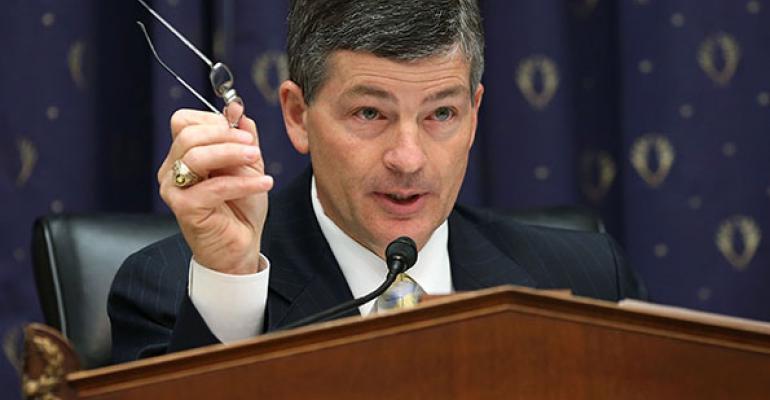By Pete Schroeder | WASHINGTON
A House banking panel on Thursday passed a controversial bill that would drastically change how the U.S. government regulates the financial sector.
With support only from the panel's Republicans, the bill approved by the House Financial Services Committee would eliminate significant parts of the Dodd-Frank financial reform law and place new restrictions on regulators monitoring Wall Street.
The bill includes a provision repealing the Department of Labor's fiduciary rule, which is currently set to go into effect June 9.
The odds of the bill offered by Representative Jeb Hensarling becoming law are long, given staunch opposition by Democrats to many of its central proposals.
The bill marks the new Congress' first attempt to significantly roll back existing financial rules after Republicans made gains in the 2016 election. President Donald Trump has identified easing rules on banks as a key component of his economic agenda and effort to spur lending and grow the economy.
Critics of the bill argue that it undoes many of the critical protections enacted following the financial crisis and puts the nation at greater risk of another meltdown.
If made law, the bill would repeal regulators' ability to step in and wind down failing financial institutions. It also would hamstring their ability to identify and more closely regulate firms they believe are critical to the health of the financial system.
Under the bill, banks that agree to adopt a 10 percent capital ratio would be allowed to receive an exemption from many of Dodd-Frank's existing rules.
It will also require regulators to get congressional approval on any major new rulemaking project, and overhaul the Consumer Financial Protection Bureau. The powers of that agency, created by Dodd-Frank, would be curtailed, limiting the steps it can take to punish wrongdoing by banks and subjecting it to a number of outside checks on its authority and funding.
In addition, the bill significantly changes how the Federal Reserve operates, subjecting its monetary policy decision-making to a stricter rules-based process, while separating its economic policymaking from its financial regulatory work.
Hensarling has said he expects the bill will be considered soon by the full House, where it likely would be passed by the Republican majority.
However, the Senate Banking Committee will be considering its own proposals to rework financial rules. More modest legislation coming from that committee is more likely to become law, given it will likely be designed to attract necessary support from Democrats.
(Reporting by Pete Schroeder; Editing by Dan Grebler)






